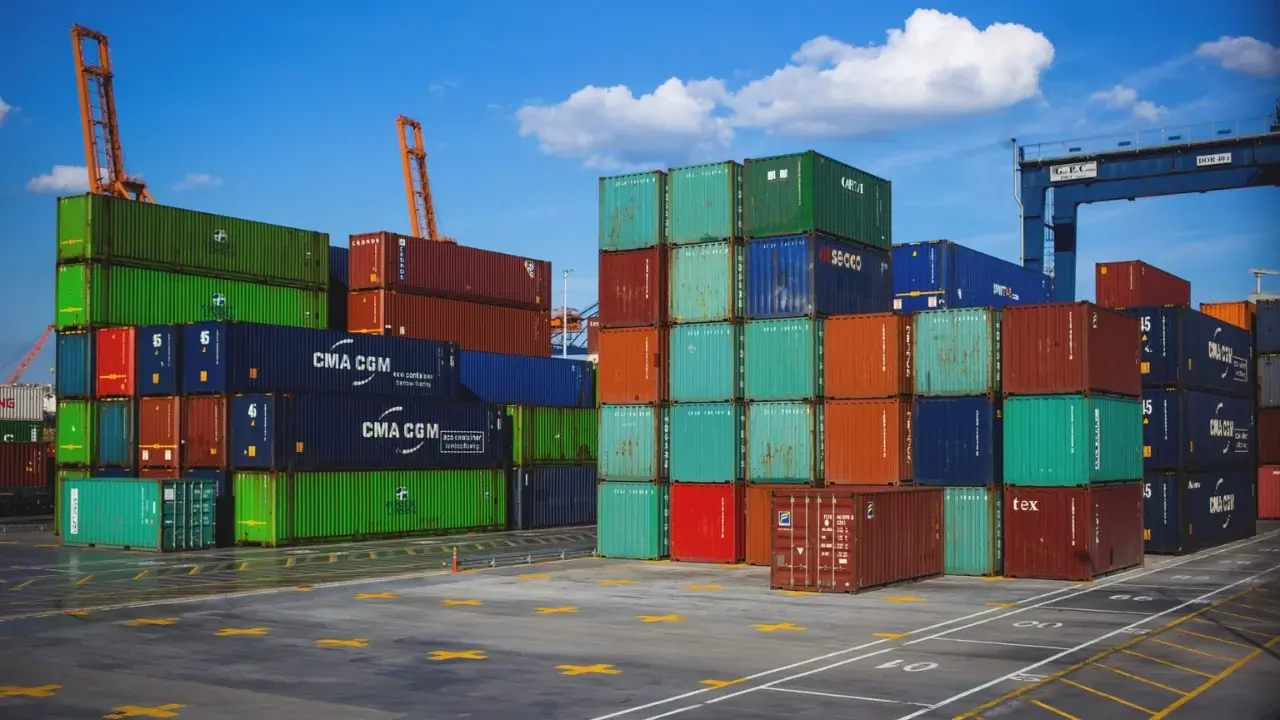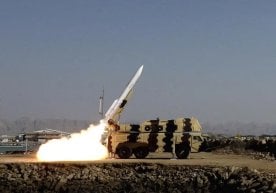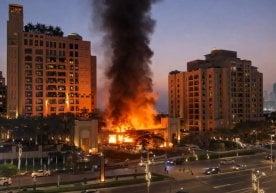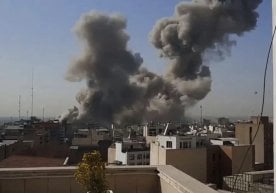Gilgit-Baltistan pushes back: Tensions rise over Pakistan-China trade practices

On July 31, the mountainous town of Sost in Gilgit-Baltistan—Pakistan's strategic northernmost territory—became the epicentre of growing tensions between local communities and the increasingly dominant China-Pakistan trade apparatus.
Social media footage widely circulated that day showed Chinese nationals blocking a key road in protest, and within hours, Pakistani traders responded by staging a sit-in that effectively brought cross-border movement at the Sost immigration point to a standstill.
These developments are not isolated. They reflect a deepening discontent in Gilgit-Baltistan (GB) over what many residents view as an exploitative trade relationship—one in which the economic benefits disproportionately favour Chinese interests while local traders are left to navigate a system they say is stacked against them.
Flashpoint: July 31 in Sost
Sost is the final Pakistani town before the Khunjerab Pass, a high-altitude mountain corridor connecting Pakistan to China's Xinjiang province. It serves as a critical node for the China-Pakistan Economic Corridor (CPEC), a multibillion-dollar initiative under China’s Belt and Road Initiative (BRI).
On July 31, tensions at this outpost came to a head. According to eyewitness accounts and videos circulating online, Chinese passengers blocked the main road in Sost following a reported disagreement with Pakistani customs officials.
The situation escalated into a physical altercation when customs personnel attempted to inspect Chinese cargo—a routine process, but one that apparently struck a nerve with the Chinese travellers.
Local traders, already staging demonstrations over what they claim are discriminatory customs checks and unequal trade terms, intensified their protest.
They moved their sit-in to the immigration entry and exit points, halting cross-border movement altogether.
By midday, security in the area had been ramped up, with Pakistani authorities deploying additional personnel to prevent further escalation.
Deepening unease
Gilgit-Baltistan’s traders have been voicing concerns for years, but recent developments underscore just how acute those frustrations have become.
Many in the region argue that CPEC—a project long hailed by Islamabad as a game-changer—has offered little by way of tangible benefit to the local economy.
Instead, GB residents say they are witnessing their lands used as corridors for foreign economic gain while their own businesses are suffocated by bureaucracy and an uneven playing field.
A recurring complaint involves the inspection of Pakistani goods and vehicles by customs officials, while Chinese shipments often pass with minimal scrutiny.
One Gilgit-Baltistan trader told a local media outlet that they were required to provide strict documentation and face exhaustive checks, while Chinese goods faced almost no scrutiny at all.
Adding to this imbalance are concerns about labour. Chinese workers employed in infrastructure projects under CPEC are often flown in rather than hired from the local population, leaving many GB residents sidelined despite promises of job creation.
The July 31 incident thus appears to be a boiling point—not just over a customs disagreement, but over the larger question of who really benefits from the trade flowing through the region.
Traders Demand Tax Exemption
The Pak-China Traders Action Committee (PCTAC) has escalated its protest at the Sost Dry Port in Hunza since July 21, demanding an end to what it terms illegal taxation by federal agencies.
The committee—comprising traders, hoteliers, transporters, and local businesses—has blocked the Karakoram Highway in Hunza and Nagar districts, disrupting trade with China.
Tensions flared after the arrest of PCTAC leaders Abbas Mir, Ali Nazar, and Farman Ali Tajik on the night of July 20–21. They were released the next day amid pressure from the trading community.
The dispute stems from federal authorities, including the FBR and Pakistan Customs, imposing income and sales taxes on Chinese imports via the Khunjerab Pass.
Historically, traders from Gilgit-Baltistan (GB) were informally exempt from such levies, especially for small-scale and local-market trade. However, stricter enforcement in recent months, citing smuggling concerns, has angered traders.
The matter reached the courts in 2024, with the GB Chief Court issuing a stay against tax collection—later overturned by the GB Supreme Appellate Court.
The traders argue that federal taxation is unconstitutional in GB, which lacks constitutional status. They cite legal provisions such as Section 40D(5) of the Sales Tax Act and the 2018 GB Order to demand complete exemption.
Over 250 containers remain stranded at the port, inflicting massive financial losses. With a China-Pakistan “Green Channel” trade agreement looming and widespread local support, Islamabad faces growing pressure to resolve the deadlock and address the longstanding constitutional vacuum in Gilgit-Baltistan.
Islamabad’s calculated silence
The federal government’s response—or lack thereof—has added another layer of frustration. While local authorities scrambled to restore order in Sost, Islamabad has remained largely silent.
No senior federal official has publicly addressed the incident, nor have there been any statements acknowledging the grievances of GB traders.
This silence, observers say, is indicative of a broader pattern. Pakistan’s federal government has long treated Gilgit-Baltistan as a geopolitical asset rather than a socio-economic priority.
Despite its strategic importance, the region remains in a constitutional limbo, lacking full provincial status and often excluded from the mainstream political discourse.
This marginalisation has made it easier for Islamabad to push forward large-scale economic projects—like CPEC—without robust local consultation.
Critics argue that this approach reduces GB to a transit zone, valuable only for its geographic location rather than for its people.
China’s growing footprint
While Islamabad plays a quiet role, China’s growing footprint in the region is increasingly visible—and increasingly contested.
From the construction of roads and tunnels to the operation of customs facilities, Chinese companies and personnel are a familiar presence in GB towns like Sost and Hunza.
Though some local residents acknowledge the improvements in connectivity and infrastructure, many also feel overwhelmed by what they see as a foreign economic occupation.
The July 31 confrontation underscores the fragility of this arrangement. The fact that Chinese nationals felt empowered to block a Pakistani road and clash with local officials speaks volumes about the perceived imbalance of power.
It raises uncomfortable questions about sovereignty and control in an area already burdened by geopolitical sensitivities.
A history of resistance
Gilgit-Baltistan is no stranger to resistance. From demands for constitutional rights and provincial status to environmental protests and economic strikes, the region has a long history of asserting its voice—often in the face of federal indifference.
The recent protests in Sost should be seen within this broader context: a population that is tired of being treated as a backdrop for national strategy.
The incident also carries echoes of previous trade disruptions, such as the 2022 protests against tax impositions on goods moving through Khunjerab or the 2023 demonstrations over border closures during peak trading months.
In each case, the federal government’s slow or inadequate response only deepened local resentments.
What's next?
While order was eventually restored in Sost following the July 31 protest, the underlying issues remain unresolved.
The Pakistan-China trade relationship, particularly under the CPEC framework, continues to generate significant unease among Gilgit-Baltistan’s residents. With little transparency, limited local consultation, and minimal economic inclusion, frustrations are likely to mount further.
The events in Sost serve as a stark reminder that even the most ambitious geopolitical projects cannot succeed without grassroots legitimacy. Gilgit-Baltistan’s people are not merely bystanders to Pakistan’s strategic ambitions—they are stakeholders, and they are increasingly unwilling to remain silent.
Unless the federal government begins to seriously engage with these concerns, future flashpoints may prove harder to contain.
For now, Sost remains quiet—but the message from Gilgit-Baltistan is loud and clear.
Read “Zamin” on Telegram! Ctrl
Enter
Found a mistake?
Select the phrase and press Ctrl+Enter 





















